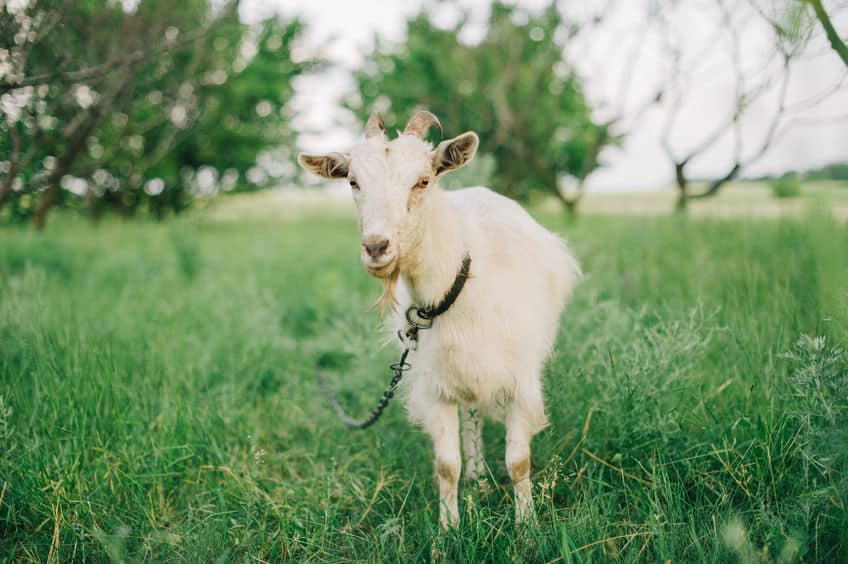By Sean Zucker –
With spring finally here, it’ll soon be time to bust out that old lawn mower. Unfortunately, back pain and a renewed farmer’s tan are far from the only harmful byproducts of tackling an overgrown lawn. Beyond just the personal hassle involved with cutting grass, using a lawn mower can do a number on the environment. The EPA estimates that hour-for-hour, gasoline powered lawn mowers produce 11 times as much pollution as a new car. Want more frightening numbers? How about this – lawn care produces on average 13 billion pounds of toxic pollutants per year.
Luckily, there’s another environmentally friendly way to trim grass, as long as you ain’t afraid of no goats.
This new lawn care tool is known as goat mowing. And yes, it usually involves renting a herd of goats for land-clearing purposes instead of relying on traditional machinery or pesticides to curb unwanted invasive plant growth. There are even companies that specialize in helping out. Rent A Goat, for example is a pioneer in this field (forgive the pun), having been founded just over a decade ago in 2010.
The company claims goats are a greener alternative to lawn mowers. They don’t pollute but they do organically fertilize while they munch away at unwanted plants and invasive weeds, like poison ivy, kudzu and thistle – all of which, they’re naturally immune. Goat mowing may even help reduce forest fires by consuming flammable brush.
Forbes, for one, sees the potential benefits of goat moving, having highlighted the practice’s ability to halt the nasty cycle of weed destruction and regrowth. “Goats have a lot of other benefits, as well. For example, when they eat weeds, they sterilize the seed during the digestive process. As a result, the seed that passes through them is infertile and doesn’t lead to more weeds,” it explained. “They also can be used to eat grass that’s likely to fuel fires. And they can easily reach steep or rocky places.”
PBS went as far as to wonder if widespread goat mowing could possibly save tax dollars. “More governments are turning to goat grazing as they look for an environmentally friendly — and more cost-effective — way to nip noxious weeds in the bud. Nationwide, eradicating weeds costs taxpayers and private landowners $34 billion a year,” it reported.
Admittedly, goat mowing hasn’t always proved economically painless. PBS reported that more than a dozen states have seen city, county and state governments lease goats, but not all have seen a corresponding tax reduction. Despite being the eco-friendlier option, many local programs, namely one in Salem, Oregon, have ended up costing more than using traditional mowing, controlled burns and herbicides.
Forbes also warned that for better or worse, goats aren’t particularly picky in what they’ll consume. In fact, they’ll eat pretty much anything. If left to their own devices, perfectly green grass, weeds and shrubs will only act as an appetizer. Nannies and billies will also devour healthy plants, wild and planted flowers and just about any other growing patio delicacies they find.
So, yes, goat mowing’s time may have come. But be forewarned. Anyone employing these fast-munching beasts do so at the risk of their lilacs, azaleas and petunias. At least, they won’t have to look too far for a scapegoat.








